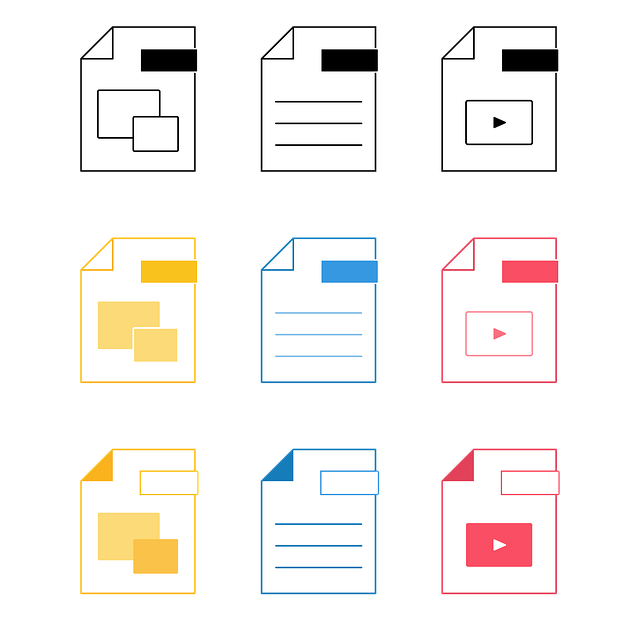UK translation services play a pivotal role in accurately translating complex insurance policies and claims documents for non-English speakers, ensuring that the technical language, legal jargon, and UK-specific regulations are conveyed precisely. These specialized translation services are essential for preventing misinterpretation, enabling policyholders to fully understand their coverage, claims processes, and any exclusions or limitations in a language they comprehend. The translators, who are experts in both legal terminology and linguistic subtleties, navigate the intricacies of insurance documents, providing clarity that is vital for making informed decisions and avoiding disputes. By ensuring that the content reflects the original text's intent with high accuracy, these translation services uphold the integrity of international insurance transactions, fostering trust and operational efficiency in a globalized industry. They adhere to strict legal standards and compliance measures, such as the UK's Consumer Rights Act 2015 and the Equality Act 2010, to ensure that all consumer information is presented in a clear and accessible manner, thus maintaining clarity and understanding for non-native speakers and complying with local laws and regulations. Utilizing advanced translation technology combined with human expertise, UK translation services offer reliable and trustworthy translations of insurance documents, ensuring that policyholders worldwide can access the information they need without confusion or risk of legal issues.
navigating translation intricacies, clear communication, insurance jargon, legal compliance, advanced translation solutions, UK policies, claims documents, accurate translations.
When safeguarding against the unexpected, understanding the terms of UK insurance policies and claims documents is paramount for policyholders worldwide. This article delves into the critical aspect of ensuring clarity in translated materials, emphasizing the challenges and best practices in conveying the nuances of UK insurance language to a global audience. By exploring ‘Insurance Policies and Claims Documents UK translation services’, we highlight the importance of precise translations that adhere to legal standards and facilitate clear communication. Whether it’s navigating policy terms or filing a claim, the insights provided aim to enhance understanding and trust in insurance services across borders.
- Navigating the Nuances of UK Insurance Policy Translation
- The Importance of Clear Communication in Translated Claims Documents
- Challenges and Solutions in Translating Insurance Jargon for a Global Audience
- Legal Considerations and Compliance in UK Insurance Policy Translation
- Best Practices for Accurate and Reliable UK Insurance Document Translation
- The Role of Advanced Translation Services in Enhancing Understanding of UK Insurance Policies and Claims
Navigating the Nuances of UK Insurance Policy Translation

When it comes to understanding insurance policies and claims documents within the UK context, precision in translation is paramount. Language differences can often lead to misinterpretation of terms and conditions, potentially leaving policyholders unaware of their coverage or liabilities. UK translation services play a critical role in ensuring that translated documents accurately convey the original meaning. These specialized services employ translators with expertise in both legal language and the idiomatic nuances of the source and target languages. This expertise is essential to navigate the complexities inherent in insurance policies, which often include technical terms, legal jargon, and specific UK-based regulations. By providing clear and precise translations, these services help individuals from non-English speaking countries to fully comprehend their coverage details, claim processes, and any exclusions or limitations. This understanding is crucial for making informed decisions about their insurance needs and for avoiding potential disputes that may arise due to misunderstandings. With the right translation, policyholders can confidently navigate their insurance policies and claims documents in the UK, ensuring they are fully protected and know exactly what they are entitled to.
The Importance of Clear Communication in Translated Claims Documents

Navigating insurance claims can be complex, even within one’s native language. However, when such documents are translated into another language, clarity becomes paramount to ensure that policyholders fully understand their coverage and the claims process. UK translation services play a critical role in this domain, offering precise and accurate translations of insurance policies and claims documents. The precision of these translations is crucial for maintaining the integrity of the original content and for providing policyholders with a clear understanding of their rights and obligations. Misunderstandings arising from poorly translated documents can lead to disputes or misinterpretation of policy terms, potentially causing financial hardship or legal complications. Therefore, the translation services must employ professionals well-versed in both languages and the insurance industry’s terminology to bridge this communication gap effectively. By doing so, these services help protect both the policyholder and the insurer, ensuring that all parties have a shared understanding of the terms of the policy and the claims process. This level of clarity is essential for fostering trust and efficiency in the international arena of insurance.
Challenges and Solutions in Translating Insurance Jargon for a Global Audience

Navigating the complexities of insurance policies and claims documents presents unique challenges, particularly when translating them for an international audience. The specialized jargon inherent to the insurance sector often does not have direct equivalents in other languages, leading to potential misunderstandings. UK translation services must tackle these linguistic barriers by employing experienced legal translators who specialize in financial terminology. These experts are adept at identifying and accurately rendering the nuanced language used in insurance contracts and claims forms. To address the challenge of cultural differences, translators must not only convey the literal meaning but also adapt the content to align with the legal and regulatory frameworks relevant to each target market. This ensures that policyholders receive clear and precise information, facilitating their understanding of their coverage and rights when filing a claim. Additionally, utilizing advanced translation technology in conjunction with human expertise can streamline the process, maintain consistency across documents, and enhance accuracy, thereby providing a reliable tool for global communication within the insurance industry. By leveraging these solutions, UK translation services can bridge language gaps, fostering transparency and trust among international clients.
Legal Considerations and Compliance in UK Insurance Policy Translation

When translating insurance policies and claims documents for the UK market, legal considerations and compliance are paramount to ensure accuracy and comprehensibility across all translated materials. The UK’s legal framework, including the Consumer Rights Act 2015 and the Equality Act 2010, mandates that information provided to consumers is both clear and accessible. Translated insurance documents must reflect this clarity to avoid misunderstandings that could lead to disputes or claims of non-compliance. UK translation services specialising in legal documentation must be adept at navigating the nuances of insurance terminology, which often includes complex and technical language. They must also be well-versed in the cultural context of the target audience to accurately convey meaning and intent, ensuring that all terms and conditions are appropriately translated and that any legal implications are preserved. This is crucial as failure to comply with UK regulations can result in significant penalties for insurance providers and translators alike. Moreover, adhering to these standards not only ensures compliance but also fosters trust between the insurance company and its policyholders, which is essential for maintaining a positive reputation and customer satisfaction.
Best Practices for Accurate and Reliable UK Insurance Document Translation

When translating UK insurance policies and claims documents, precision and accuracy are paramount to ensure clarity and understanding among non-native speakers. The best practice for accurate and reliable translation involves a combination of skilled human translators and advanced translation technology. Human expertise is crucial in navigating the nuances of language, including idiomatic expressions, legal terminology, and industry-specific jargon that are unique to UK insurance policies. By leveraging professional UK translation services, organizations can provide translated documents that reflect the original text’s intent with the utmost fidelity. These services often employ a two-step process where the initial translation is carried out by a subject matter expert, followed by a review and refinement by another translator to ensure consistency and accuracy. This collaborative approach minimizes the risk of misinterpretation and cultural errors, which could otherwise lead to misunderstandings or even legal complications. Furthermore, incorporating translation memory software helps maintain terminological consistency across all documents, enhancing the reliability and trustworthiness of the translated content for policyholders and claimants alike.
The Role of Advanced Translation Services in Enhancing Understanding of UK Insurance Policies and Claims

Advanced translation services play a pivotal role in bridging language barriers that often complicate the understanding of UK insurance policies and claims documents. With the intricate details and legal jargon inherent in such documentation, these services ensure that the meaning and intent behind the text are accurately conveyed to individuals who speak different languages. The precision required in translating insurance policies and claims is not just a matter of linguistic equivalence but also involves cultural nuances and legal terminology specific to the UK’s regulatory framework. This level of expertise is essential for maintaining clarity and trust, particularly when policyholders from diverse linguistic backgrounds rely on these documents to make informed decisions about their coverage and to navigate the claims process effectively.
Furthermore, the reliability of UK translation services is critical in a globalized economy where businesses and individuals alike frequently cross borders. These services not only facilitate comprehension but also ensure compliance with local laws and regulations by providing accurate translations of insurance policies and claims documents. This accuracy is paramount to prevent misinterpretation or misunderstanding, which could lead to disputes or financial losses. By leveraging the latest in translation technology and employing skilled linguists, these services offer a critical safeguard for both policyholders and insurers, promoting a transparent and fair insurance environment in a multilingual context.
Translation precision is paramount in the UK insurance sector, where clarity across policies and claims documents is essential for policyholders to understand their coverage. This article has highlighted the intricacies involved in translating these documents accurately and reliably, ensuring that individuals from diverse linguistic backgrounds receive the same level of understanding as native English speakers. By addressing the nuances, legal considerations, and challenges inherent in insurance jargon translation, and by outlining best practices, this discussion underscores the critical role of advanced UK translation services in fostering transparency and trust. As global markets continue to expand, the need for precise translations of UK insurance policies and claims documents will only grow, making the insights provided here not just timely but indispensable for insurers and policyholders alike.



